To further expand the international cooperation network of the University of Macau (UM), UM Rector Yonghua Song and Vice Rector Rui Martins led a delegation to visit Brazil. During the trip, they signed cooperation agreements with several renowned higher education institutions and established plans for cooperation, deepening the cooperation and coordinated development between UM and Brazilian institutions in the field of research and education.
The UM delegation travelled to the state of São Paulo and visited the University of São Paulo (USP), one of Brazil’s leading universities. Song and Sergio Persival Baroncini Proença, provost for international cooperation of USP, signed a strategic cooperation framework agreement to formally establish a strategic partnership between UM and USP. According to the agreement, the two universities will focus on deepening cooperation in the fields of ocean science, biorobotics, and computer science, and will establish a range of cooperation initiatives, such as dual degree programmes, student and faculty exchange programmes, and joint seminars. The delegation also visited the Numerical Offshore Tank, the Unmanned Vehicles Laboratory, the Center for Artificial Intelligence, and the Law School at USP, and engaged in in-depth discussions with representatives of these units on cooperation.
During their visit to the State University of Campinas (Unicamp), the UM delegation met with Antonio José de Almeida Meirelles, rector of the university, and other representatives. The two parties signed a cooperation agreement aimed at promoting student and faculty exchanges and joint academic activities, and also discussed the feasibility of launching dual degree programmes. The delegation also visited the Faculty of Electrical and Computer Engineering, and the laboratories in the Institute of Biology and the Institute of Chemistry at Unicamp to learn more about the university’s key research projects and have in-depth discussions on research collaboration.
At São Paulo State University (UNESP), Song had a meeting with Maysa Furlan, executive vice rector of the university, and other representatives. The two parties reached a consensus on establishing a memorandum of understanding, launching student and faculty exchanges as well as research collaboration. They also explored ways to strengthen cooperation and exchanges in the fields of law, the humanities, science and technology, and engineering.
The UM delegation also travelled to Brasília, the capital of Brazil, and visited the University of Brasília (UnB). Song exchanged views with Enrique Huelva Unternbäumen, acting rector of the university, as well as representatives from various academic disciplines. The two parties signed a memorandum of understanding to strengthen cooperation in areas such as food safety, law and computer science, and held discussions on related cooperation projects. The delegation also visited the Faculty of Information Science and the Faculty of Law at UnB to actively explore plans for cooperation in the disciplines concerned.
During their stay in Brazil, the UM delegation visited the Brazilian Ministry of Education and the Ministry of Science, Technology and Innovation, where they met with Alexandre Brasil Carvalho da Fonseca, secretary of higher education of the Ministry of Education, and Leandro Pedron, director of thematic programs at the Secretariat of Strategic Policies and Programs of the Ministry of Science, Technology and Innovation. During the meeting, the delegation learned about Brazil’s policies on the development of higher education and technological innovation. The two parties also shared experiences and exchanged views on promoting international cooperation in higher education and research innovation.
The delegation also met with Zhu Qingqiao, Ambassador Extraordinary and Plenipotentiary of the People’s Republic of China to the Federative Republic of Brazil; Li Qi, minister counsellor of the Chinese Embassy in Brazil; and Wang Zhiwei, education counsellor of the Chinese Embassy in Brazil. Song gave them an overview of UM’s development in recent years and its research collaboration with Brazilian institutions. He added that Macao is an important platform for economic and trade cooperation and cultural exchanges between China and Portuguese-speaking countries, and that cooperation between UM and Brazilian universities will help the Macao SAR cultivate high-quality Chinese-Portuguese bilingual talent, thus contributing to economic, trade, and cultural exchanges between China and Brazil. Zhu acknowledged UM’s rapid development and said that, in recent years, China and Brazil have achieved remarkable results in cooperation in various fields, such as economy and trade, education, and cultural exchanges. As this year marks the 50th anniversary of the establishment of China-Brazil diplomatic relations, the cooperation between the two countries is entering a new stage of development. He expressed hope that UM will continue to actively support the development strategies of the SAR and the country and establish closer cooperation with Brazilian universities, adding that the embassy will fully support UM in deepening its cooperation with Brazilian universities.
The UM delegation also included Tong Io Cheng, dean of the Faculty of Law; Wang Ruibing, director of the Global Affairs Office; and Carlos Silvestre, professor in the Faculty of Science and Technology.
| Source: Global Affairs Office | |
| Media Contact Information: | |
| Communications Office, University of Macau | |
| Albee Lei | Tel: (853) 8822 8004 |
| Jason Leong | Tel: (853) 8822 8322 |
| Email: | prs.media@um.edu.mo |
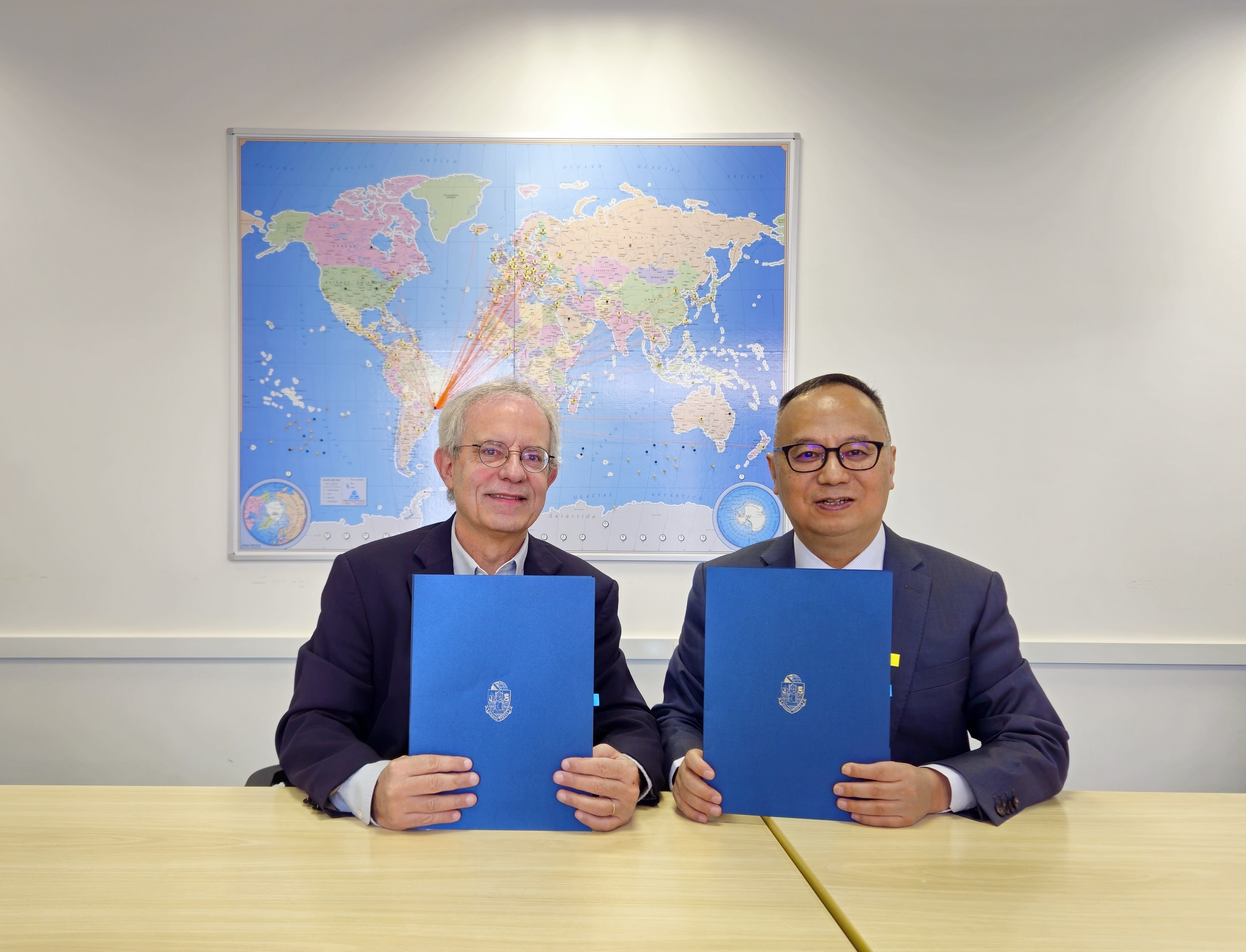
Yonghua Song (right) and Sergio Persival Baroncini Proença
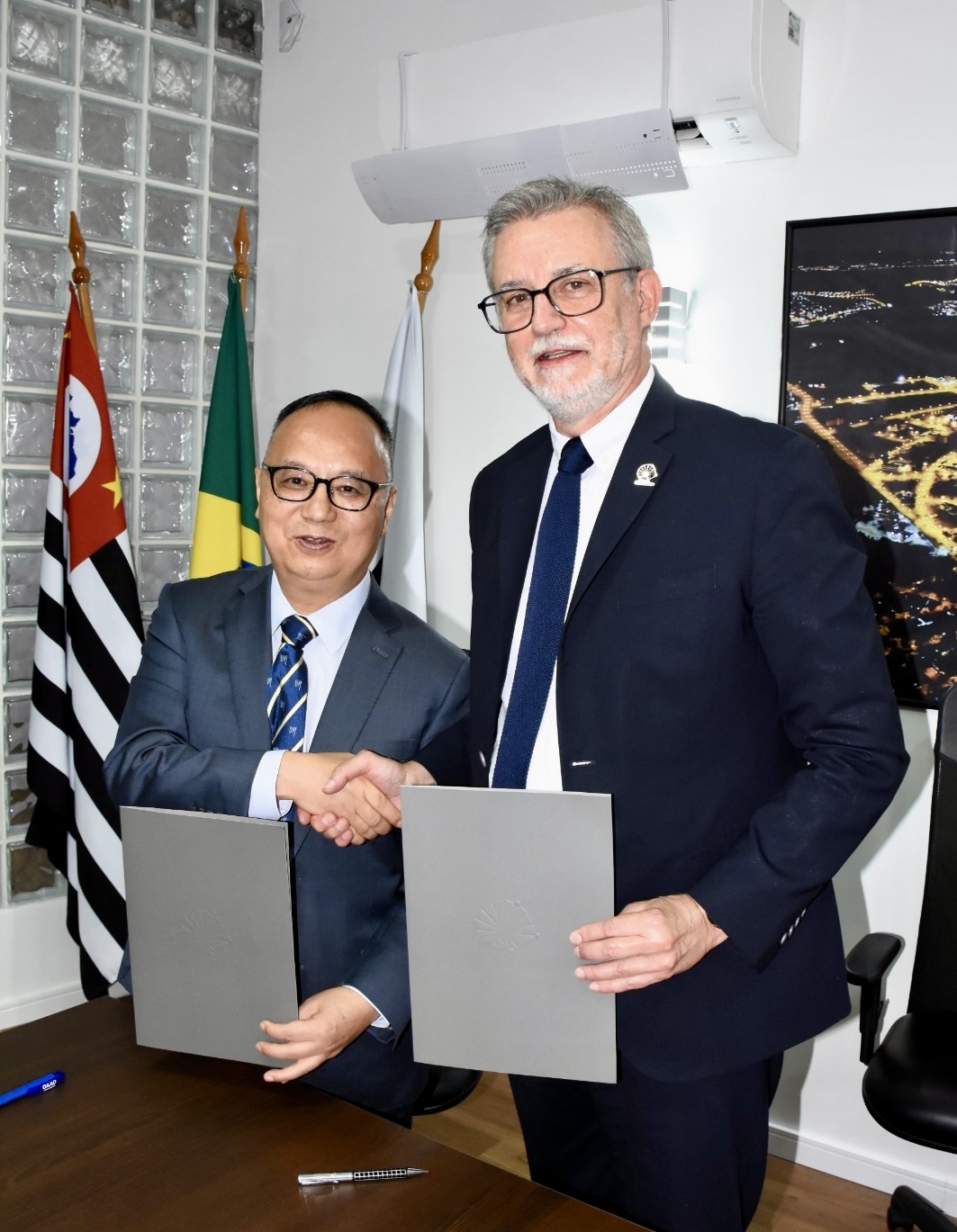
Yonghua Song (left) and Antonio José de Almeida Meirelles
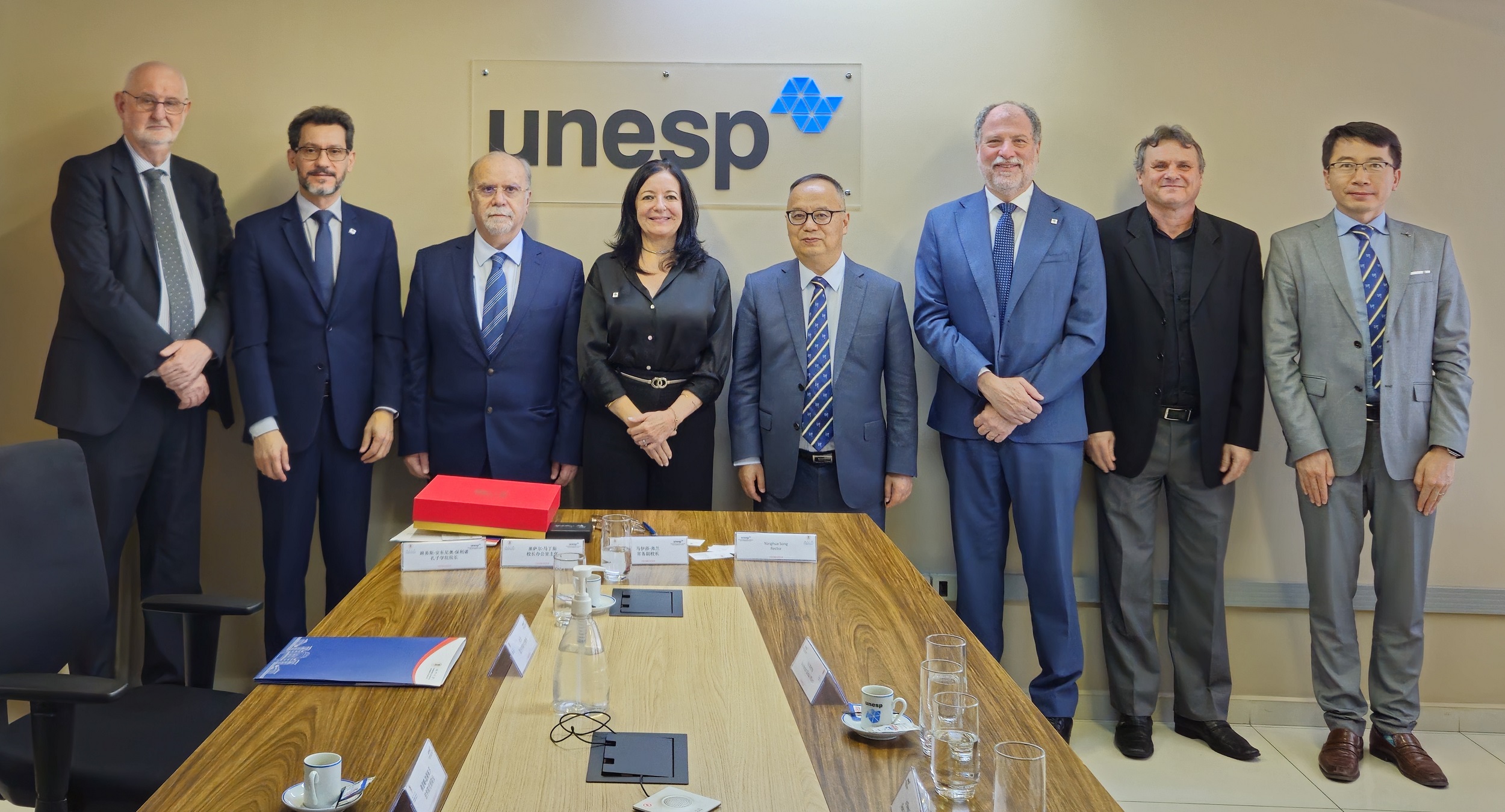
The UM delegation and representatives of São Paulo State University
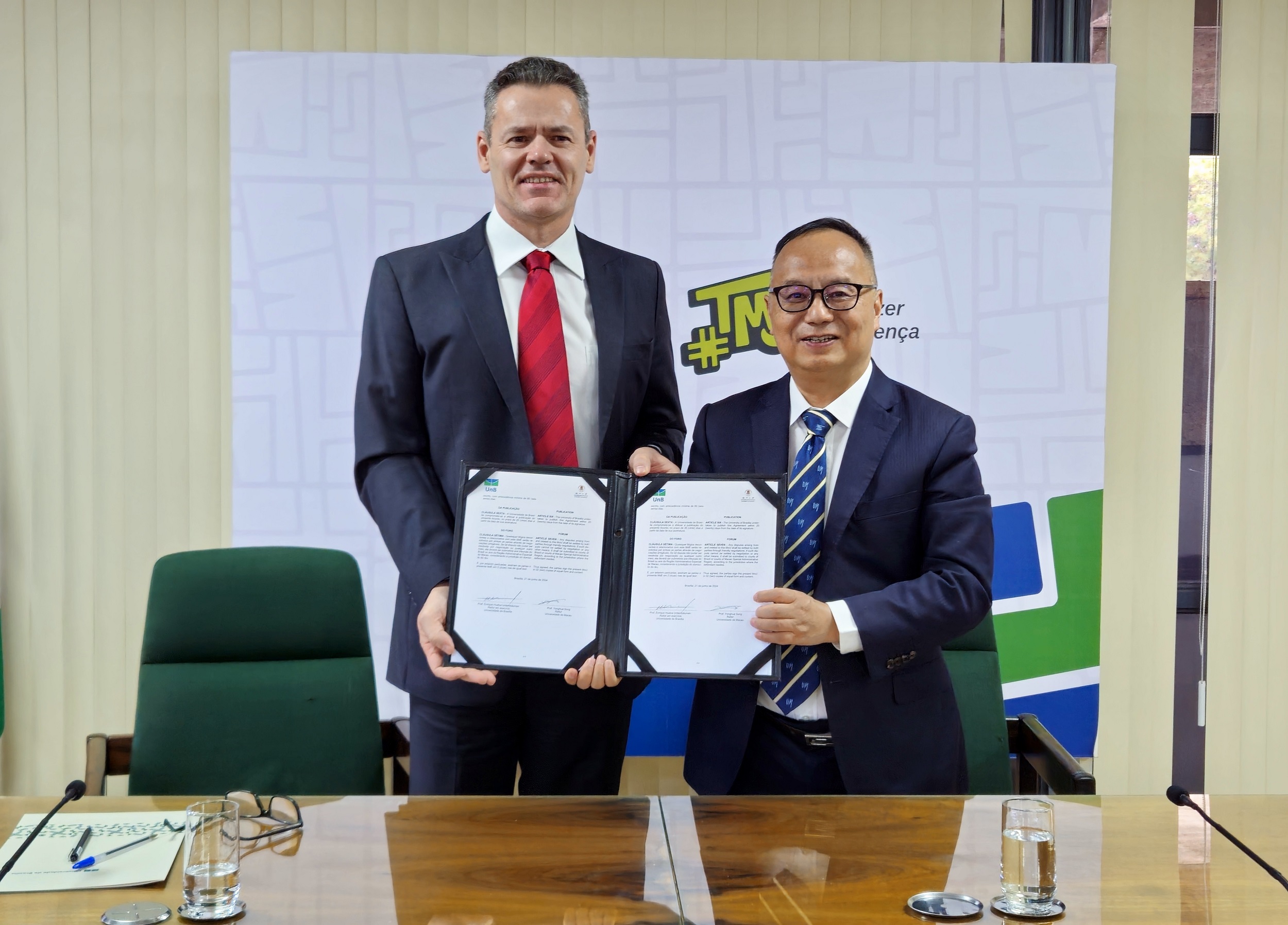
Yonghua Song (right) and Enrique Huelva Unternbäumen
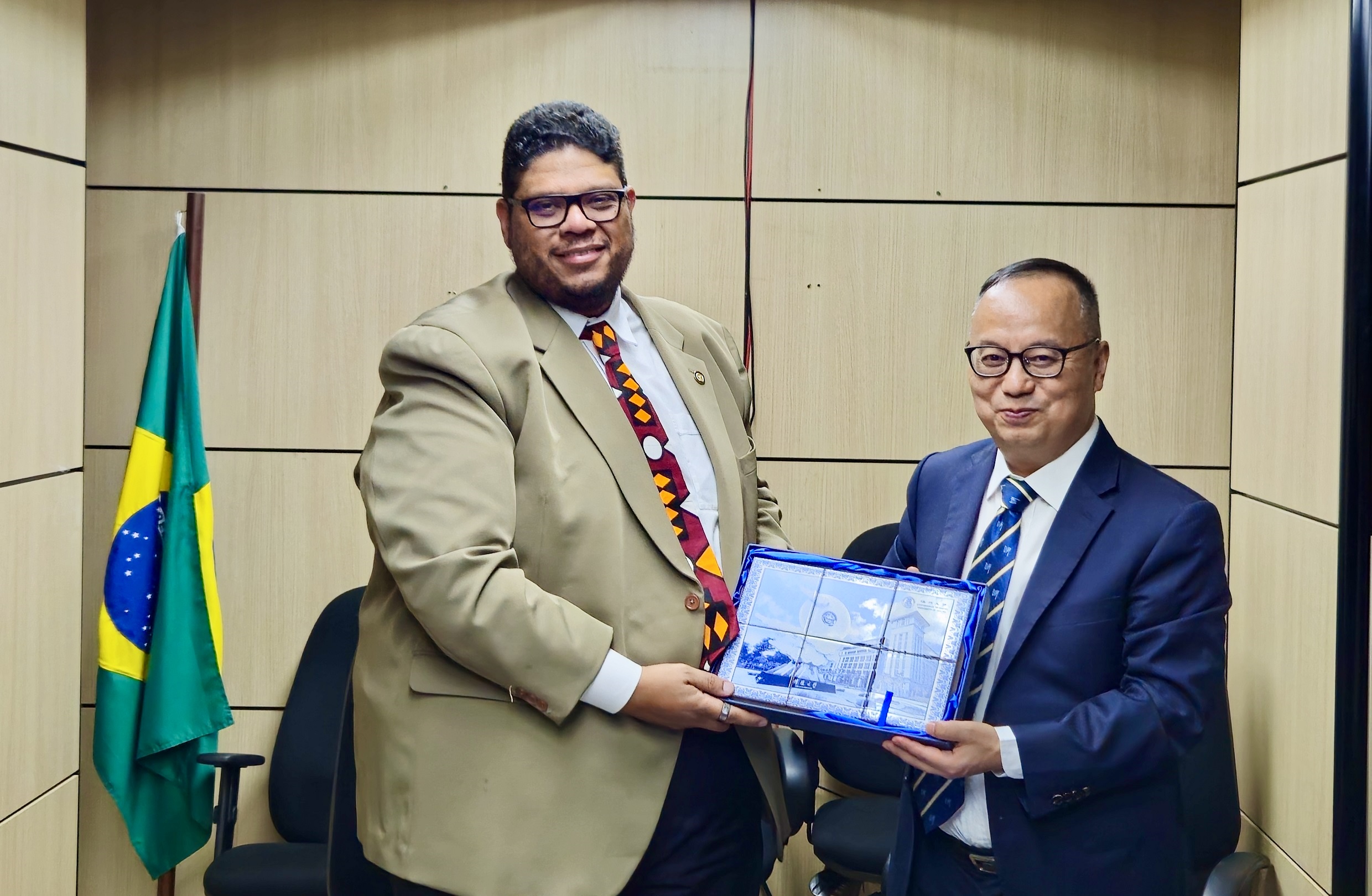
Yonghua Song (right) and Alexandre Brasil Carvalho da Fonseca
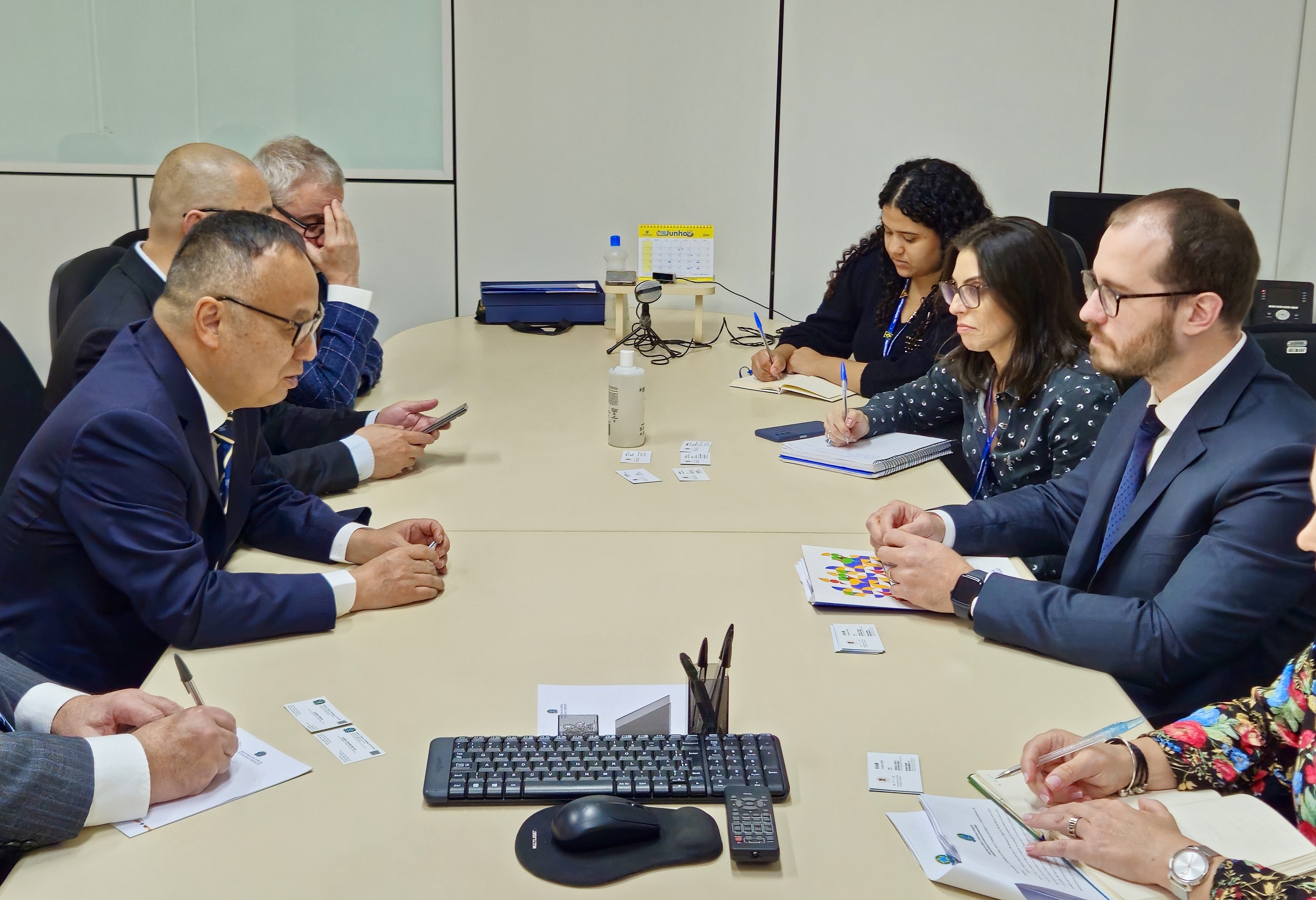
The UM delegation met with representatives of the Brazilian Ministry of Science, Technology and Innovation
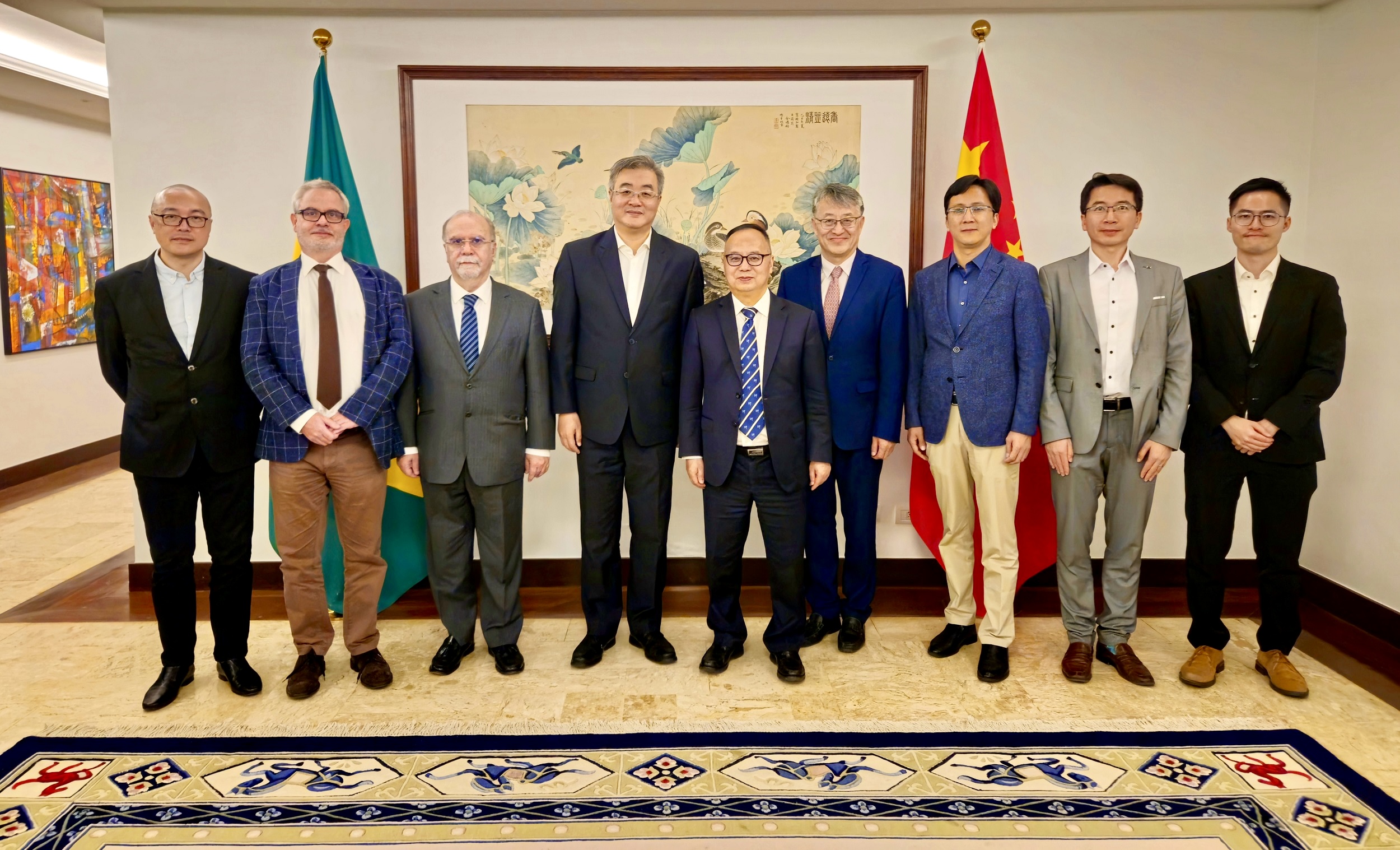
The UM delegation met with Zhu Qingqiao (4th from left), Li Qi (3rd from right), and Wang Zhiwei (4th from right)
